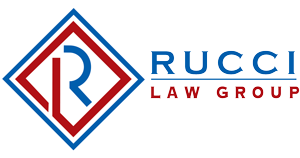(Part two of three installments)
Part one of this article discussed the importance of wills, powers of attorney, and healthcare proxies as part of any effective estate plan. In this section, we will discuss the value of trusts as an additional estate planning component.
Revocable Trusts
There are many types of trusts, but the two main categories are revocable and irrevocable trusts. A revocable trust is one that you (the grantor) set up during your lifetime, and it stays under your control for as long as you live. You are allowed to amend or revoke a revocable trust at any time. You may place assets in a revocable trust and those assets will be held in the trust’s name. The trust will also establish how you would like the assets to be distributed upon your death.
A key benefit of a revocable trust is that assets held therein are not subject to probate (i.e., not distributed according to a will), thus making it easier and less expensive to pass them to your heirs. Assets in a trust are also confidential and not subject to public filings.
The trade-off for the flexibility of a revocable trust is that it does not transfer wealth outside of your estate for estate tax or statutory probate fee purposes. A revocable trust is usually set up under the grantor’s social security number. The grantor pays taxes on any income generated by the assets during his or her lifetime. When the grantor dies, the trust receives its own tax ID number and the assets become subject to state and federal estate taxes at the trust rate unless they are distributed to the beneficiaries according to the trust’s terms.
Irrevocable and Other Trusts
As the name implies, an irrevocable trust is the opposite of a revocable trust. Its main purpose is as a wealth transfer vehicle since once it is set up, the grantor no longer owns or controls the assets. Someone else must be appointed as the trustee and a separate tax ID number is established. An irrevocable trust can be set up so either the grantor or the trust pays the taxes on income generated within the trust. The assets are not included in the grantor’s taxable estate and so are not subject to estate taxes. Irrevocable trusts can also be used to protect assets from creditors and to set up guidelines for the terms of inheritance for beneficiaries.
There are other types of less commonly used trusts that still have value for estate planning. Two of interest are charitable remainder trusts and irrevocable life insurance trusts.
Charitable Remainder Trusts
A charitable remainder trust involves giving a gift to a charity of an asset that has appreciated greatly – for instance, a painting, a house, or stock. The charity then sells that asset at current market value without owing any capital gains on the appreciation. Using the proceeds, the charity pays the grantor an annuity payment over a pre-determined term of years, with whatever is left over at the end (a mandatory minimum of 10% of the original gift) being kept by the charity. The grantor receives a current income tax deduction on the value of the remainder distribution to the charitable beneficiary.
Irrevocable Life Insurance Trusts
An irrevocable life insurance trust is established specifically to own a life insurance policy. Often individuals hold policies in significant dollar amounts to protect their young families or to provide an inheritance later in life. These policies’ death benefits, however, can often exceed federal or state estate exclusion amounts and will be taxed accordingly. But if the insurance policy is owned in a trust, the asset is outside of the estate and therefore not subject to taxation. Existing life insurance policies can be transferred into a life insurance trust but will be subject to a three-year look back by the IRS before the transfer can be recognized for tax purposes. If a policy is originally purchased by a trust, the benefits are available immediately.
Part three of this article will cover important estate planning aspects of gifting, accounting titling, and beneficiary designations.
For more information about estate planning, please contact Michele D. Gartland or Marianne C. Cirillo.
